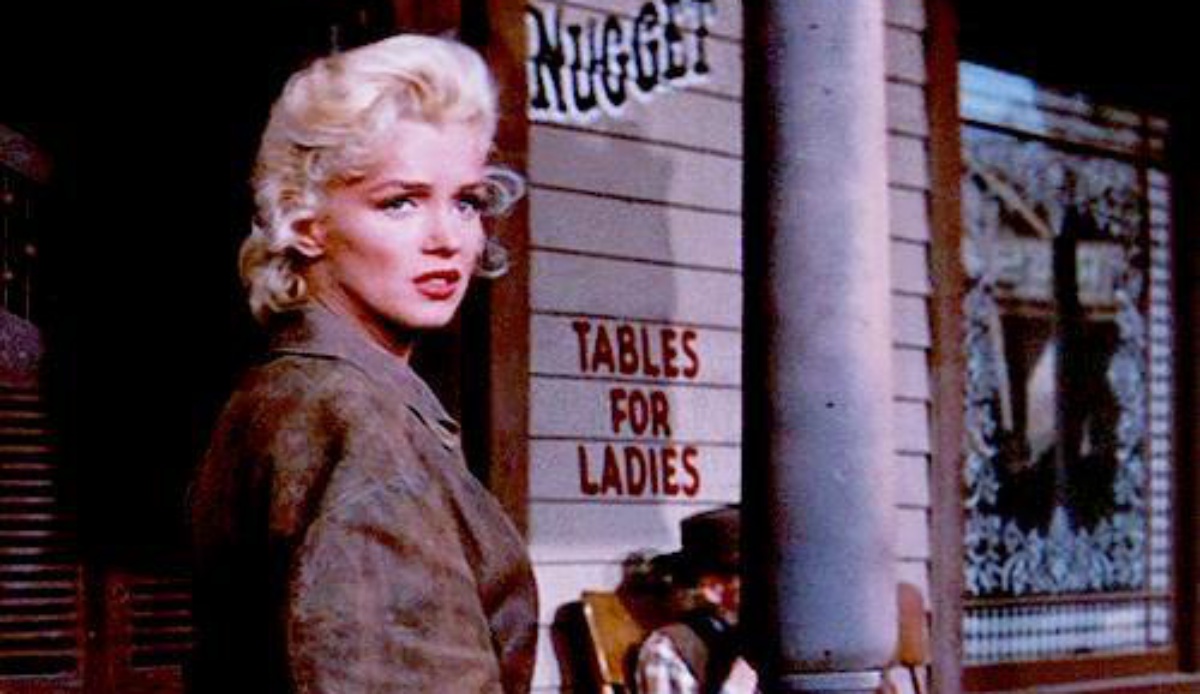Why Is Netflix’s ‘Blonde’ Rated NC-17? Director: “I Thought We’d Colored Inside the Lines”

Blonde, the upcoming Andrew Dominik film based on the fictional Joyce Carol Oates’s novel of the same name, depicting the inner life of actress Marilyn Monroe, has been given an NC-17 Rating, much to the surprise of its director.
Back in March, the film officially got the NC-17 rating, the only rating stricter than an R. Being assigned NC-17 means that “No children will be admitted. NC-17 does not mean ‘obscene’ or ‘pornographic’ in the common or legal meaning of those words, and should not be construed as a negative judgment in any sense. The rating simply signals that the content is appropriate only for an adult audience. An NC-17 rating can be based on violence, sex, aberrational behavior, drug abuse or any other element that most parents would consider too strong and therefore off-limits for viewing by their children.”
“I thought we’d colored inside the lines,” Dominik said to Vulture. “But I think if you’ve got a bunch of men and women in a boardroom talking about sexual behavior, maybe the men are going to be worried about what the women think. It’s just a weird time. It’s not like depictions of happy sexuality. It’s depictions of situations that are ambiguous. And Americans are really strange when it comes to sexual behavior, don’t you think? I don’t know why. They make more porn than anyone else in the world.”
“The film is sincere. It’s made with love. It’s made with good intentions. But it’s full of rage at the same time,” Dominik told Netflix Queue. “I seem to get myself in these situations where people regard me as provocative, but it’s never what I’m trying to do. I’m just trying to say it as clearly as I can. My ambition is to make you fall in love with Marilyn.”
The book Blonde is an over-700-page fictionalized look at Monroe by author Joyce Carol Oates and, after its 2000 publication, was a finalist for the Pulitzer Prize (2001) and the National Book Award (2000).
Ana de Armas (Knives Out) plays Monroe in the film.
“We worked on this film for hours, every single day for almost a year,” recalls de Armas in Netflix Queue. “I read Joyce’s novel, studied hundreds of photographs, videos, audio recordings, films — anything I could get my hands on. Every scene is inspired by an existing photograph. We’d pore over every detail in the photo and debate what was happening in it. The first question was always, ‘What was Norma Jeane feeling here?’ We wanted to tell the human side of her story. Fame is what made Marilyn the most visible person in the world, but it also made Norma the most invisible.”
Two years ago, Oates praised the rough cut of the film, saying, “I have seen the rough cut of Andrew Dominick’s [sic] adaptation and it is startling, brilliant, very disturbing and perhaps most surprisingly an utterly ‘feminist’ interpretation. Not sure that any male director has ever achieved anything [like] this.”
It has been awhile since a mainstream-style film has gotten an NC-17 rating. The last two I can think of are Blue Is the Warmest Colour and Shame.
Dominik said that if Blonde came out a few years ago, it would have aligned well with the #MeToo moment: “[…] it would have been an expression of all that stuff. We’re in a time now, I think, where people are really uncertain about where any lines are. It’s a film that definitely has a morality about it. But it swims in very ambiguous waters because I don’t think it will be as cut-and-dried as people want to see it. There’s something in it to offend everyone.”
Marilyn Monroe is a figure that, despite being more understood for the complex human being she was, is still often just commodified in a way that shows the message hasn’t fully sunk in. Her hair, her clothes, and her story is still used to make money.
When asked if maybe the rating is reflective of a protection around Monroe’s iconic image, Dominik says, “I don’t know. It’s dangerous to do other people’s thinking for them. Who knows? On the one hand, I think if I’m given the choice, I’d rather go and see the NC-17 version of the Marilyn Monroe story. Because we know that her life was on the edge, clearly, from the way it ended. Do you want to see the warts-and-all version or do you want to see that sanitized version?”
Audiences will get a chance to answer that question later this year. Blonde will stream on Netflix, but as of now, the date is unknown, and Dominik has expressed hope that it would be selected to premiere at the 2022 Venice Film Festival, which takes place in September.
(via Variety, image: 20th Century Fox)
Have a tip we should know? tips@themarysue.com